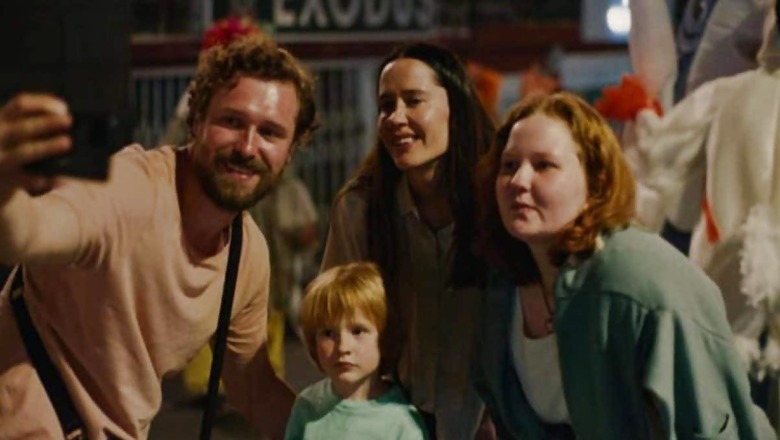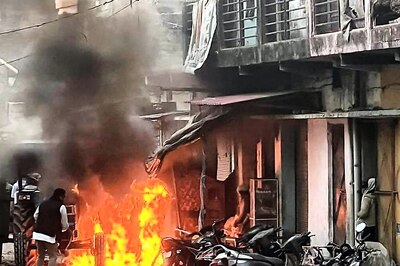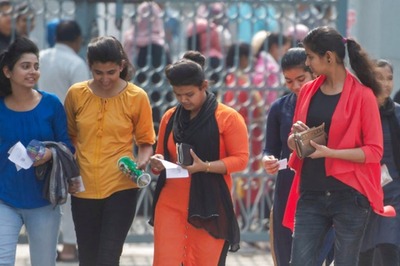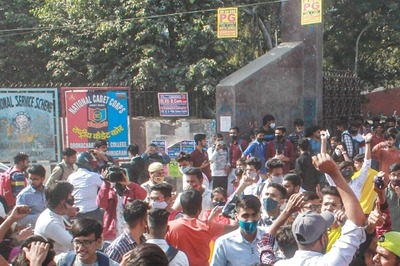
views
Poland has long been a bastion of cinematic brilliance, shaping world cinema with its profound storytelling, intricate characters, and social commentary. Over decades, it has produced directors whose films have not only garnered international recognition but also challenged the conventions of the medium itself. From the introspective realism of Andrzej Wajda to the philosophical musings of Krzysztof Kieślowski, Polish cinema has stood as a formidable force, inspiring filmmakers across the globe. At the 49th Polish Film Festival in Gdynia, this legacy is celebrated once more with the screening of Under The Volcano, a 2024 drama directed by rising star Damian Kocur, marking yet another chapter in the rich history of Polish cinema.
Polish cinema’s international breakthrough came in the post-World War II era, marked by a need to process the war’s trauma and the ensuing political tensions. One of the first major filmmakers to emerge during this period was Andrzej Wajda, whose films captured the complexities of Polish history, particularly the harrowing consequences of World War II. His War trilogy — A Generation (1955), Kanal (1957), and Ashes and Diamonds (1958) — crystallised the despair, loss, and moral ambiguity left in the wake of the war.
Wajda’s deep engagement with history set the tone for many filmmakers who followed. Wajda won the honorary Oscar in 2000, cementing his place as one of the greats of world cinema. But he was not alone. Krzysztof Zanussi, with his sharp philosophical examinations of morality and science, and Wojciech Has, with his stunningly surreal narratives like The Saragossa Manuscript (1965), offered unique, deeply intellectual perspectives, contributing to the diverse tapestry of Polish filmmaking.
The 1970s and 80s heralded the arrival of Krzysztof Kieślowski, whose work delved deeply into human consciousness, questioning the very essence of existence. His Three Colors trilogy (1993-94) — Blue, White, and Red — has been etched into the annals of world cinema for its emotional depth and philosophical rigour. Kieślowski’s metaphysical explorations in films like The Double Life of Veronique (1991) and Dekalog (1989) exemplify Polish cinema’s unique ability to merge personal dilemmas with universal truths, an ethos that continues to influence contemporary directors.
The new generation of Polish filmmakers has managed to keep this heritage alive, building on the emotional and intellectual depth of their predecessors while forging new paths in an ever-evolving world. The success of Paweł Pawlikowski, particularly with Ida (2013) and Cold War (2018), which both won the Academy Award for Best Foreign Language Film and the Best Director award at Cannes, respectively, signifies the global appeal and relevance of contemporary Polish cinema. Pawlikowski’s masterful storytelling and the stark, monochrome aesthetics of Ida drew parallels with the works of Wajda and Kieślowski, showing that modern Polish filmmakers could deftly marry history with intimate human stories.
Similarly, filmmakers like Tomek Popakul, whose animated works like Acid Rain (2019) and Zima (2017) have brought a fresh, experimental flair to Polish cinema, are pushing boundaries in terms of form and content. Popakul’s films, often characterised by their hallucinatory visuals and dark, brooding atmospheres, echo the surrealist touches of Wojciech Has, but with a distinctly modern sensibility.
It is within this rich tradition of emotionally charged, intellectually stimulating cinema that Damian Kocur’s Under The Volcano makes its mark at the 49th Polish Film Festival. The film, an intense depiction of the emotional turmoil faced by a Ukrainian family as they are unexpectedly caught in the outbreak of war, stands out not only for its topical relevance but also for its profound exploration of the human condition.
Set against the backdrop of Tenerife, the largest of Spain’s Canary Islands, the film captures the Kovalenko family’s serene holiday, which is abruptly transformed into a nightmare as they become refugees overnight. The film’s stark contrast between the paradisiacal landscapes of Tenerife and the devastating realities of war serves as a poignant metaphor for the fragility of life and the unpredictable nature of conflict.
Written by Damian Kocur and Marta Konarzewska, Under The Volcano resonates with the broader themes that have always underpinned Polish cinema — displacement, identity, and survival. With cinematography by Nikita Kuzmienko, the film juxtaposes the sweeping vistas of Tenerife’s Mt Teide with the growing sense of unease and emotional unravelling within the Kovalenko family. As their return to Kyiv becomes impossible, they are thrust into a world where they must navigate the uncertain, terrifying path of becoming refugees, a situation that mirrors the plight of millions displaced by the ongoing war in Ukraine.
The choice of Tenerife as the setting further amplifies the film’s sense of isolation and entrapment. Known for its towering dormant volcano, the island becomes a powerful symbol of dormant conflict — much like the tension that erupts unexpectedly in the Kovalenko family’s lives. Through this, Kocur draws on Polish cinema’s long tradition of blending the personal with the political, creating a film that feels both timely and timeless.
At the 49th Polish Film Festival in Gdynia, Under The Volcano joins a roster of films that embody the strength and diversity of contemporary Polish cinema. Competing in the Main Competition alongside films such as White Courage, Wet Monday, Woman Of…, and Green Border, Under The Volcano represents a new generation of Polish filmmakers who are willing to confront not only national trauma but global crises.
What sets Kocur apart is his ability to build on the foundations laid by the likes of Wajda, Kieślowski, and Zanussi, while also bringing in a distinct voice that speaks to the complexities of the modern world. His empathetic portrayal of the Ukrainian family, caught between two worlds and two realities, is a reminder of the power of cinema to not only reflect society but to interrogate and challenge it.
Polish cinema has always stood at the crossroads of history, often grappling with questions of identity, memory, and survival. From Wajda’s powerful war narratives to Kieślowski’s existential musings, from Pawlikowski’s historical inquiries to Popakul’s surreal, modern landscapes, Polish filmmakers have consistently pushed the boundaries of storytelling, offering audiences not just films but experiences that stay with them long after the credits roll.
With Under The Volcano, Damian Kocur proves that the legacy of Polish cinema is not just alive but thriving. His film is a testament to the enduring power of Polish storytelling, merging the personal and the political, the local and the global, in a way that is both deeply rooted in tradition and forward-looking. As Under The Volcano continues its journey on the festival circuit, and with its selection as Poland’s submission for Best International Feature Film at the 97th Academy Awards, it serves as a reminder that Polish cinema remains one of the world’s most vibrant and influential artistic traditions.
The author is an Indian critic and journalist who has served as a jury member for the 69th and 70th National Film Awards. Views expressed in the above piece are personal and solely those of the author. They do not necessarily reflect News18’s views.




















Comments
0 comment